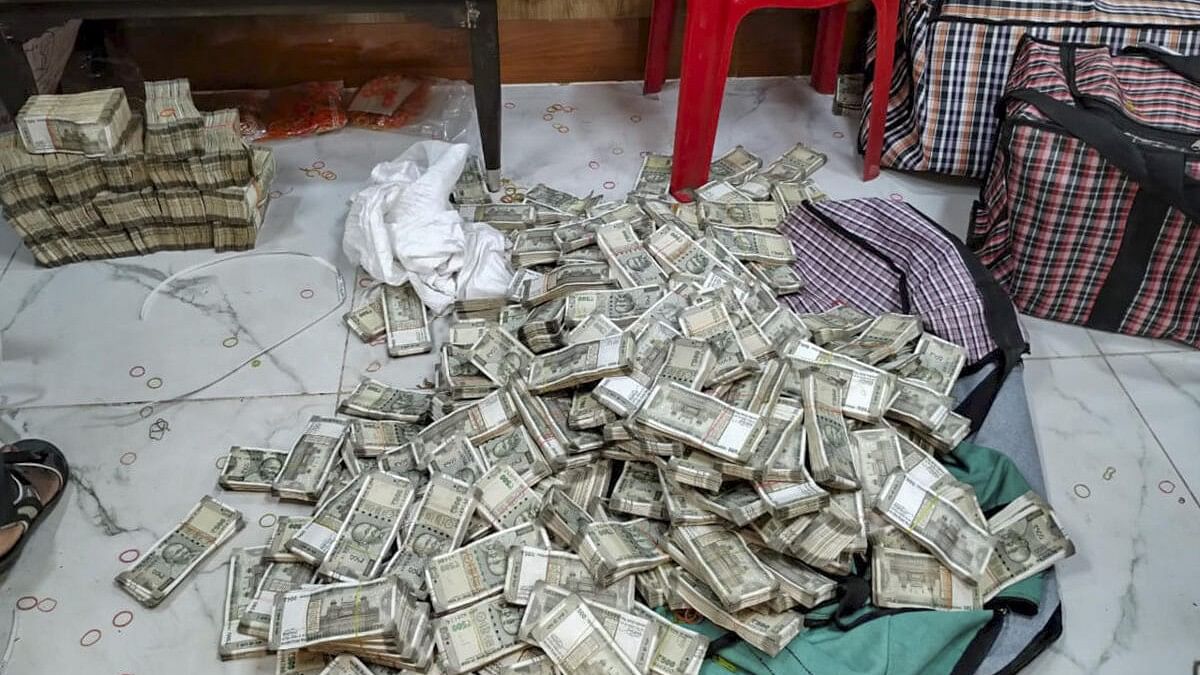
Cash being counted by officials on the 5th day of the Income Tax department raids against Odisha-based distillery and linked entities, in Ranchi.
Credit: PTI Photo
It would be futile to differentiate between businessman Dhiraj Sahu and politician Dhiraj Sahu, after a cash stash of Rs 351 crore was found in his premises, in order to fix responsibility for what’s being called the biggest-ever black money horde found in one place. Sahu is a Congress Rajya Sabha MP from Jharkhand, and his family has a large distillery business in that state and Odisha. His son is the managing director and his brother the chairman of the distillery company. It took the Income Tax Department six days to finish the note count. The stash apparently came from cash sales of liquor, which evade all taxes like Excise, VAT and Income Tax. The earlier record for a cash horde was held by a Kanpur businessman, from whom cash amounting to Rs 257 crore was recovered in 2019. The recovery has many pointers to facts in the country’s business, politics and society.
The Congress party has much to explain about its MP’s unaccounted money. The party has distanced itself from him but the fact remains that he and his family have been associated with it for decades. His brother was also an MP from the party. Questions have been raised whether the money was for political and electoral uses. The Sahu family has extensive business interests in Odisha, which is also a state ruled by an Opposition party, the Biju Janata Dal (BJD). The nexus between politicians, bureaucrats and businessmen is strong everywhere in the country and the Sahu family’s fortunes would not have thrived if this nexus did not exist. Very often actions against businessmen and politicians do not reach their logical end. If those who are on the receiving end of actions shift their loyalties to the ruling party, the actions come to nothing. There are many cases that show this.
Demonetisation has not had any major impact on the generation of black money in the country. If at all there was a temporary impact, that has been overcome and the country is once again awash with unaccounted money. Only the storing has become a bit more difficult as the stash has to be maintained in Rs 100, Rs 200 and Rs 500 denominations, as the Sahus did. The Sahus’ horde could only be the tip of the iceberg. This unknown and unaccounted iceberg that spreads out across the country would certainly flow into politics and elections. Electoral Bonds cannot check the flow as they too are anonymous donations and have proved to be discriminatory instruments that favour the ruling party. The problem of black money is especially important at a time when the country is heading into national elections in the next few months, but it has ramifications beyond elections, too.